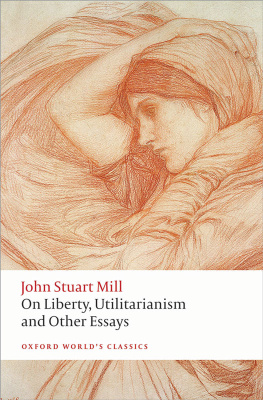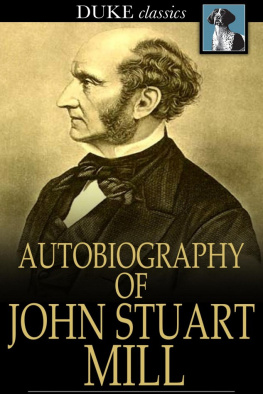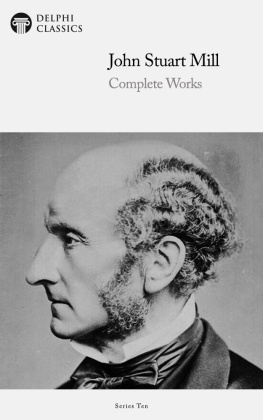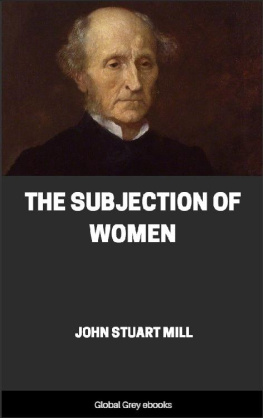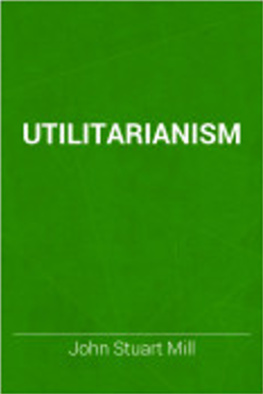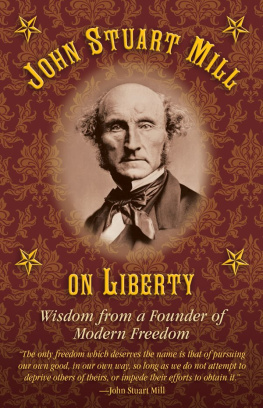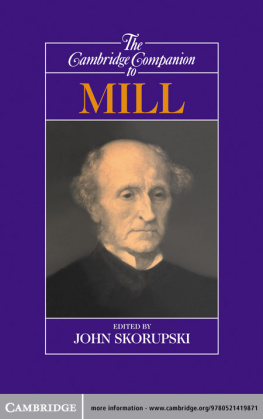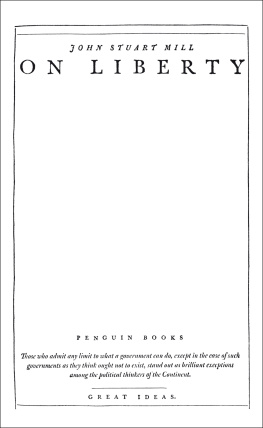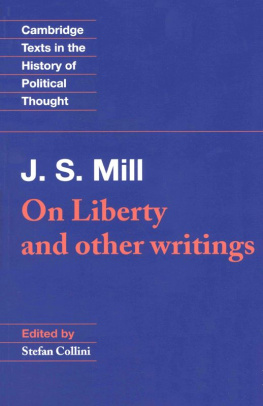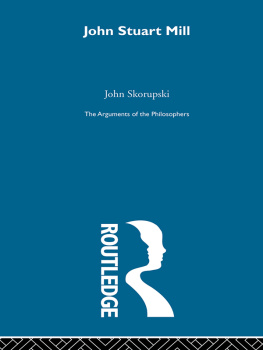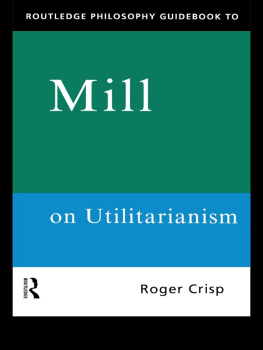John Stuart Mill - On Liberty
Here you can read online John Stuart Mill - On Liberty full text of the book (entire story) in english for free. Download pdf and epub, get meaning, cover and reviews about this ebook. year: 2011, genre: Science. Description of the work, (preface) as well as reviews are available. Best literature library LitArk.com created for fans of good reading and offers a wide selection of genres:
Romance novel
Science fiction
Adventure
Detective
Science
History
Home and family
Prose
Art
Politics
Computer
Non-fiction
Religion
Business
Children
Humor
Choose a favorite category and find really read worthwhile books. Enjoy immersion in the world of imagination, feel the emotions of the characters or learn something new for yourself, make an fascinating discovery.

- Book:On Liberty
- Author:
- Genre:
- Year:2011
- Rating:5 / 5
- Favourites:Add to favourites
- Your mark:
- 100
- 1
- 2
- 3
- 4
- 5
On Liberty: summary, description and annotation
We offer to read an annotation, description, summary or preface (depends on what the author of the book "On Liberty" wrote himself). If you haven't found the necessary information about the book — write in the comments, we will try to find it.
On Liberty — read online for free the complete book (whole text) full work
Below is the text of the book, divided by pages. System saving the place of the last page read, allows you to conveniently read the book "On Liberty" online for free, without having to search again every time where you left off. Put a bookmark, and you can go to the page where you finished reading at any time.
Font size:
Interval:
Bookmark:
The Project Gutenberg EBook of On Liberty, by John Stuart Mill
This eBook is for the use of anyone anywhere at no cost and with
almost no restrictions whatsoever. You may copy it, give it away or
re-use it under the terms of the Project Gutenberg License included
with this eBook or online at www.gutenberg.org
Title: On Liberty
Author: John Stuart Mill
Release Date: January 10, 2011 [EBook #34901]
Language: English
*** START OF THIS PROJECT GUTENBERG EBOOK ON LIBERTY ***
Produced by Curtis Weyant, Martin Pettit and the Online
Distributed Proofreading Team at http://www.pgdp.net
With an Introduction by
W. L. Courtney, LL.D.
The Walter Scott Publishing Co., Ltd.
London and Felling-on-Tyne
New York and Melbourne
To the beloved and deplored memory of her who was the inspirer, and in part the author, of all that is best in my writingsthe friend and wife whose exalted sense of truth and right was my strongest incitement, and whose approbation was my chief rewardI dedicate this volume. Like all that I have written for many years, it belongs as much to her as to me; but the work as it stands has had, in a very insufficient degree, the inestimable advantage of her revision; some of the most important portions having been reserved for a more careful re-examination, which they are now never destined to receive. Were I but capable of interpreting to the world one-half the great thoughts and noble feelings which are buried in her grave, I should be the medium of a greater benefit to it than is ever likely to arise from anything that I can write, unprompted and unassisted by her all but unrivalled wisdom.
John Stuart Mill was born on 20th May 1806. He was a delicate child, and the extraordinary education designed by his father was not calculated to develop and improve his physical powers. "I never was a boy," he says; "never played cricket." His exercise was taken in the form of walks with his father, during which the elder Mill lectured his son and examined him on his work. It is idle to speculate on the possible results of a different treatment. Mill remained delicate throughout his life, but was endowed with that intense mental energy which is so often combined with physical weakness. His youth was sacrificed to an idea; he was designed by his father to carry on his work; the individuality of the boy was unimportant. A visit to the south of France at the age of fourteen, in company with the family of General Sir Samuel Bentham, was not without its influence. It was a glimpse of another atmosphere, though the studious habits of his home life were maintained. Moreover, he derived from it his interest in foreign politics, which remained one of his characteristics to the end of his life. In 1823 he was appointed junior clerk in the Examiners' Office at the India House.
Mill's first essays were written in the Traveller about a year before he entered the India House. From that time forward his literary work was uninterrupted save by attacks of illness. His industry was stupendous. He wrote articles on an infinite variety of subjects, political, metaphysical, philosophic, religious, poetical. He discovered Tennyson for his generation, he influenced the writing of Carlyle's French Revolution as well as its success. And all the while he was engaged in studying and preparing for his more ambitious works, while he rose step by step at the India Office. His Essays on Unsettled Questions in Political Economy were written in 1831, although they did not appear until thirteen years later. His System of Logic, the design of which was even then fashioning itself in his brain, took thirteen years to complete, and was actually published before the Political Economy. In 1844 appeared the article on Michelet, which its author anticipated would cause some discussion, but which did not create the sensation he expected. Next year there were the "Claims of Labour" and "Guizot," and in 1847 his articles on Irish affairs in the Morning Chronicle. These years were very much influenced by his friendship and correspondence with Comte, a curious comradeship between men of such different temperament. In 1848 Mill published his Political Economy, to which he had given his serious study since the completion of his Logic. His articles and reviews, though they involved a good deal of workas, for instance, the re-perusal of the Iliad and the Odyssey in the original before reviewing Grote's Greecewere recreation to the student. The year 1856 saw him head of the Examiners' Office in the India House, and another two years brought the end of his official work, owing to the transfer of India to the Crown. In the same year his wife died. Liberty was published shortly after, as well as the Thoughts on Parliamentary Reform, and no year passed without Mill making important contributions on the political, philosophical, and ethical questions of the day.
Seven years after the death of his wife, Mill was invited to contest Westminster. His feeling on the conduct of elections made him refuse to take any personal action in the matter, and he gave the frankest expression to his political views, but nevertheless he was elected by a large majority. He was not a conventional success in the House; as a speaker he lacked magnetism. But his influence was widely felt. "For the sake of the House of Commons at large," said Mr. Gladstone, "I rejoiced in his advent and deplored his disappearance. He did us all good." After only three years in Parliament, he was defeated at the next General Election by Mr. W. H. Smith. He retired to Avignon, to the pleasant little house where the happiest years of his life had been spent in the companionship of his wife, and continued his disinterested labours. He completed his edition of his father's Analysis of the Mind, and also produced, in addition to less important work, The Subjection of Women, in which he had the active co-operation of his step-daughter. A book on Socialism was under consideration, but, like an earlier study of Sociology, it never was written. He died in 1873, his last years being spent peacefully in the pleasant society of his step-daughter, from whose tender care and earnest intellectual sympathy he caught maybe a far-off reflection of the light which had irradiated his spiritual life.
The circumstances under which John Stuart Mill wrote his Liberty are largely connected with the influence which Mrs. Taylor wielded over his career. The dedication is well known. It contains the most extraordinary panegyric on a woman that any philosopher has ever penned. "Were I but capable of interpreting to the world one-half the great thoughts and noble feelings which are buried in her grave, I should be the medium of a greater benefit to it than is ever likely to arise from anything that I can write, unprompted and unassisted by her all but unrivalled wisdom." It is easy for the ordinary worldly cynicism to curl a sceptical lip over sentences like these. There may be exaggeration of sentiment, the necessary and inevitable reaction of a man who was trained according to the "dry light" of so unimpressionable a man as James Mill, the father; but the passage quoted is not the only one in which John Stuart Mill proclaims his unhesitating belief in the intellectual influence of his wife. The treatise on Liberty was written especially under her authority and encouragement, but there are many earlier references to the power which she exercised over his mind. Mill was introduced to her as early as 1831, at a dinner-party at Mr. Taylor's house, where were present, amongst others, Roebuck, W. J. Fox, and Miss Harriet Martineau. The acquaintance rapidly ripened into intimacy and the intimacy into friendship, and Mill was never weary of expatiating on all the advantages of so singular a relationship. In some of the presentation copies of his work on
Font size:
Interval:
Bookmark:
Similar books «On Liberty»
Look at similar books to On Liberty. We have selected literature similar in name and meaning in the hope of providing readers with more options to find new, interesting, not yet read works.
Discussion, reviews of the book On Liberty and just readers' own opinions. Leave your comments, write what you think about the work, its meaning or the main characters. Specify what exactly you liked and what you didn't like, and why you think so.

